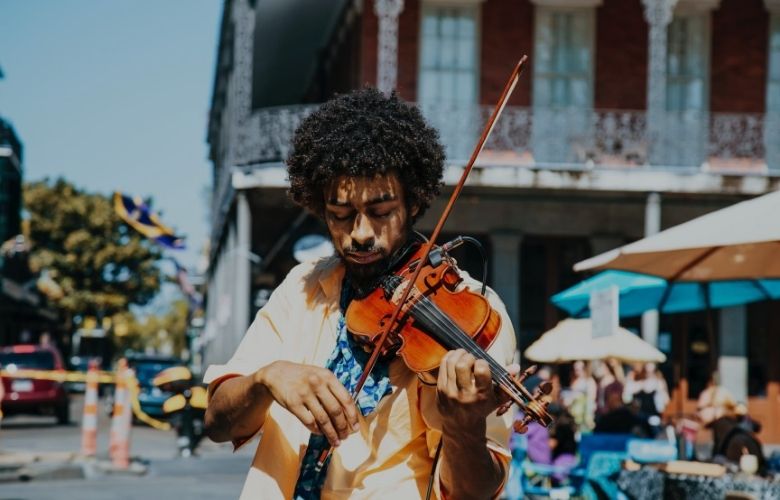
Following the worldwide Black Lives Matter movement, the UK music industry is campaigning for a united front against racism and intolerance.
In the first of two campaigns in summer 2020, the Musicians’ Union has called on the largest music exam board ABRSM to diversify their syllabi. ABRSM qualifications are an internationally recognised standard, particularly for classical music. The exam board and registered charity was founded in 1889 with the headquarters based in London today.
The MU has penned a letter to ABRSM with the backing of over 70 organisations, musicians, teachers and academics, demanding they take action to diversify their syllabi. The concerns raised outline the ways in which “the syllabi’s lack of diversity is contributing to the erasure of Black, Brown, Indigenous and Asian People of Colour (BBIAPOC) from Western European musical history.”
Dear ABRSM,
As an organisation with a huge influence on young people’s musical and cultural development you have a responsibility to reflect the diverse heritage of music and improve diversity in the music education sector. There have been concerns for many years that you are failing to do either, that your syllabi lack diversity and contributes to the erasure of Black, Brown, Indigenous and Asian People of Colour (BBIAPOC) from Western European musical history.
While seeking language that accurately reflects our aims, and acknowledging that this may be imperfect terminology, we use BBIAPOC in this context to recognise ABRSM’s role as a global institution with links to the white colonial communities that have settled in New Zealand, Australia and North America, where Indigenous peoples continue to be racialised and oppressed by non-indigenous or whiteness.
A music syllabus that reflects the diversity of music teachers and the students they teach is integral to improving representation and participation in music education. We all have a responsibility to ensure that music education is accessible to and reflective of the most diverse range of students possible – and ABRSM is pivotal in making this happen.
With over 650,000 candidates sitting ABRSM exams each year in more than 90 countries, you are in a privileged and unique position to create and drive change in the music education sector.
ABRSM’s history is entwined with the history and legacy of British Empire. As David Wright’s social and cultural history of the ABRSM notes, your organisation is a legacy of Victorian Britain and the colonial project having been created to expand the technological and professional workforce needed to run the British Empire. Many Black and Brown musicians and composers in the Global North are here as a direct result of that, and their absence in syllabi speaks to the ongoing erasure of their contributions to Western European Classical music.
This is not a new issue. Various individuals and organisations have raised the lack of BBIAPOC composers with ABRSM numerous times in recent years, most recently a petition started by Grace Healy that to date has received over 4000 signatures. Many of us have received inadequate responses.
Whilst we welcome your revised commitment to diversity and the launch of a mentoring scheme these commitments still have no measurable targets. Without publicly stated, measurable targets, your commitment feels like another inadequate response.
The recent music industry initiative called #theshowmustbepaused has brought a renewed focus to this issue. The Black Lives Matter movement in the US and the UK has shone a spotlight on what happens when there is a lack of BBIAPOC people in positions of power and influence and arts, culture and music has a huge role to play in sharing our collective histories and stories as a nation. Including BBIAPOC voices is essential to creating a more fair and equal society.
There is a wealth of BBIAPOC composers to choose from. There is a wealth of BBIAPOC composers to commission new work from. There is a growing number of musicians, academics, students and music teachers asking you to be more diverse. Another inadequate response is not enough. We demand to see tangible action.
We, the undersigned, demand the ABRSM undertakes the following actions:
We also demand that any task force, board or committee that discusses how these actions will be implemented must include BBIAPOC to ensure this commitment.
Who composes the music we teach matters. Young BBIAPOC musicians need the opportunity to learn about BBIAPOC role models if they are to aspire to be musicians and composers.
Music education is a subject that should thrive on diversity. To limit the subject is a disservice to students, teachers and the composers who aren’t being played.
ABRSM must address these inequalities or it will be left behind.
In the second campaign, the MU has signed an open letter along with over 700 artists, producers, managers and music professionals urging the industry to speak out and eradicate racism.
The hashtag #NoSilenceInMusic has been prompted by the recent anti-Jewish sentiments and BLM movement that have been prevalent this year. The full Letter of Unity and a list of co-signatories can be viewed here.
Email nosilenceinmusic@yahoo.com to add your name as a co-signatory.
The official Black Lives Matter website https://blacklivesmatter.com/
The UK Black Lives Matter website https://blacklivesmatter.uk/
The TheatreArtLife Podcast BLM special with Victor Garnier & Reagan P Mitchell
Victor Garnier’s BLM Article on TheatreArtLife
The Human Library: Check Out Real People
Ali Wright Photographs Theatre Staff Working As Key Staff during COVID


Michelle is a musician and composer from the UK. She has performed across the UK and Europe and is passionate about arts education and opportunities for women and girls.
Read Full Profile© 2021 TheatreArtLife. All rights reserved.

Thank you so much for reading, but you have now reached your free article limit for this month.
Our contributors are currently writing more articles for you to enjoy.
To keep reading, all you have to do is become a subscriber and then you can read unlimited articles anytime.
Your investment will help us continue to ignite connections across the globe in live entertainment and build this community for industry professionals.